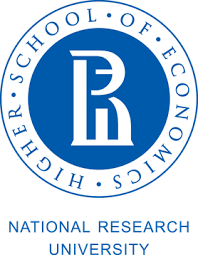

International Interdisciplinary Conference - Korea and Russia: International Agenda
Contact: akuteleva@hse.ru
Deadline: Thu, 25 Jun 2020
In 2020, the Republic of Korea and the Russian Federation celebrate the 30th anniversary of the establishment of diplomatic relations. The dynamic dialogue between the two states promotes economic cooperation, cultural exchanges, innovations, and positive changes in international relations. The Conference seeks to support diverse research on Korea-Russian relations and encourage scholarly interchange between Korean and Russian researchers, though scholars from all regions are invited to participate.
The first objective of the Conference is to contribute to the understanding of Korea-Russian relations in regional and global contexts. The second objective is to encourage wide-ranging discussions of external and internal factors in Korea’s and Russia’s foreign policy and their responses to regional and global economic challenges and opportunities. By exploring Korean and Russian perspectives on international politics and economics, this conference will provide new theoretical and practical insights into foreign policymaking, global cooperation, and intercultural dialogue.
- Although the conference has a theme, it should be treated broadly for submissions under individual topics of interest, including, but not limited to:
- The evolution of Korean-Russian Relations: External and internal factors
- Development and peacebuilding on the Korean peninsula
- Russia’s “turn to the East”: Challenges and opportunities
- Development of the Russian Far East and Russia’s relations with East Asian countries
- Sustainability and energy security: Korean and Russian perspectives
- Public diplomacy: Lessons from Korea and Russia
- Heritage, memory and the politics of identity
- China’s foreign policy under Xi Jinping: A “peaceful rise 2.0” or a threat to the international order?
- Engaging Japan: Cooperation, friction, and prospects
- Eurasia at the crossroads of nationalism and regionalism
- Dichotomy “East-West” in the contemporary international relations
Roundtable: Challenges and Opportunities for Teaching East Asia
In addition to panels based on the major themes, we will also host a roundtable on Challenges and Opportunities for Teaching East Asia. Its goal is to facilitate and enhance the cross-cultural exchange of pedagogical practices and strategies. We invite instructors to join the roundtable to discuss their lived classroom experiences and share pedagogical ideas, approaches, and practices in teaching East Asia-related topics across all disciplines.
A special section of the roundtable will focus on Korean language education and cover the following topics:
- International trends in Korean language education;
- Integrated teaching of Korean language and culture;
- Practices of learner-centered Korean language education.
Conference organizers
HSE University and Kyung Hee University Double Degree Program in Economics and Politics in Asia: https://www.hse.ru/en/ba/epa/
Institute of Global Affairs at Kyung Hee University: http://iga.khu.ac.kr/
Please feel free to contact Anna Kuteleva (akuteleva@hse.ru) if you might have any questions about the Conference.
Submission & Deadlines
Academics or practitioners wishing to present a paper are invited to submit an abstract of no more than 250 words via the conference website: https://we.hse.ru/cic/korea_russia/.
Together with the abstract please provide the following information:
- Title of paper
- Author’s name(s) and affiliations(s)
- Author’s short bio (no more than 100 words).
- Email address and mailing address
- 5 keywords
The deadline for submission of abstracts is 25 July 2020. Confirmation of acceptance of the abstract and participation in the Conference will be sent out by 30 July 2020. The deadline for submitting the full paper is 5 October 2020.
Important dates
- 16 March 2020 - Call for papers opens
- 25 June 2020 Paper proposals submission deadline
- 30 July 2020 - Proposal acceptance/ rejection notifications
- (sent by e-mail to the individual who submitted the proposal)
- 31 July 2020 - Travel grant application notifications (sent by e-mail to the individual who applied for the travel grant)
- 7 September 2020 - Final registration deadline for all panelists
- (Participants not registered are withdrawn from the Conference program)
- 5 October 2020 - Deadline to submit full papers
Travel awards for graduate students and early-career scholars
The organizing committee will make available five grants to ease the cost of participation for graduate students and early-career scholars presenting papers at the conference.
- Recipients will receive a subsidy that covers hotel accommodation (a single room for a maximum of 4 nights stay, considering the nights from October 18 to 21, 2020), books, and meal credits.
- The travel award is not intended to be a refund of accommodation expenses, therefore the awarded presenters (authors) must not book accommodation individually, but they have to follow instructions of the Conference committee. No refund will be given in case of self-booked rooms in other hotels.
- Unfortunately, we are not able to cover all travel expenses and strongly encourage applicants to search for additional sources of funding. The award does not cover travel costs (e.g. airline tickets) and visa application fees.
How to apply?
Indicate your status and whether you would like to be considered for an award along with your personal information when submitting your proposal. Requests sent after the abstract submission will not be considered.
Who is eligible for the travel award?
1. Recipients must be presenters (authors) at a panel or round-table listed in the program. Priority will be given to applicants who are the sole authors of a paper, rather than a co-author. Among co-authored papers, priority will be given to applicants who are the first authors.
2. Recipients must be graduate students (master’s level or PhD) OR be no greater than five years post-PhD.
3. Recipients must live and study/work outside of Moscow and Moscow Region.
Travel grants applicants are notified of results as of 31 July 2020











